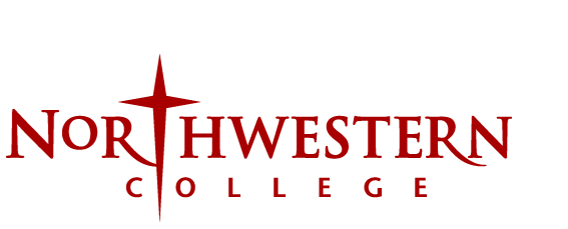The scrapbook, a Bible, birth and christening certificates, and legal documents, tell the story of a German couple during World War II. Roderich Wolff (1897–1973) was Jewish and his wife Elisabeth (1912–2006) was Christian. They married on December 20, 1930, and moved to Erfurt, Germany. Roderich was arrested by the Gestapo during Kristallnacht on November 9, 1938, and sent to Buchenwald Concentration Camp. He was released with payment and an exit visa.
In January 1939 the Wolffs settled in Amsterdam, The Netherlands. Found in the scrapbook are letters from prominent Dutch theologians and resistance workers such as Dr. Johan Eijkman, Dr. M.C. Slotemaker de Bruine, and Hebbe Kohlbrugge. During the German occupation of the Netherlands, Roderich was a forced laborer at Camp Gijsselte and Boschplan Amstelveen. He was also briefly interned at Westerbork Transit Camp.
In 1948 the Wolffs emigrated to the United States and settled in the Palm Springs area in California. In the 1950s Elisabeth compiled legal documents in an attempt to secure restitution from the German government.
In May 2016, Jeff Barker donated the Scrapbook and Papers of Roderich & Elisabeth Wolff to the Archives at the DeWitt Library, Northwestern College, Orange City, Iowa. His mother, Bette Lou Barker, was Elisabeth’s friend and her executor upon her death in San Marcos, California, in 2006. Recognizing the historical significance of the scrapbook, Bette Lou sent the materials to her son, a theater professor at Northwestern College.
The collection (MS17 in Manuscripts and Personal Papers) was processed, researched, and digitized by Sara R. Huyser, Access Services Coordinator. A special thanks goes to Dr. Johan Hegeman for the translation of Dutch documents and for providing valuable historical background. Also thanks to Dr. Michael Kensak, Glenda De Vries, and Dr. Jane Vander Kooi for translating the German documents.
(Note: Elisabeth Wolff goes by many names in the documents: she was christened Johanna Elisabeth Bachmann, but went by Elisabeth. Her nickname was Lisbeth. In America, she changed the spelling of her name to Elizabeth while Roderich also changed his spelling to Roderick.)
-

Scrapbook of Elisabeth & Roderich Wolff
In this image, the scrapbook pages created by Elisabeth can be viewed. Letters, documents, and personal photographs are included. Due to the condition of the scrapbook pages, items were removed and placed in archival folders according to the order found in the scrapbook.
-

Envelope with Jewish Star & Note from Roderich Wolff to Elisabeth Wolff, Camp Gijsselte, near Hoogeveen, The Netherlands, 1942
This envelope was addressed to Mrs. L. Wolff and taped to the exterior was a Dutch Jewish star. The note was sent to Elisabeth while Roderich was a forced laborer at Camp Gijsselte. He arrived at this camp on January 15, 1942, and was released on May 19, 1942. [A partial English translation of the hard-to-decipher German original is provided.]
-
![Leaflet: Concerning the Obligations of Jews not required to wear the Jewish Star, [1942] Leaflet: Concerning the Obligations of Jews not required to wear the Jewish Star, [1942]](https://nwcommons.nwciowa.edu/wolffscrapbook/1002/thumbnail.jpg)
Leaflet: Concerning the Obligations of Jews not required to wear the Jewish Star, [1942]
This 2 page document describes all the rules applying to “Jews who under the disposal of the German security police were exempt from wearing a Jewish star as a form of identification.” [English translation of Dutch original is provided.]
-

Photograph of an interior living room of an apartment, Summer 1939
Captions reads, “Zimmer kucke bread –erstaz Sommer 39.”
-

Letter from Dr. Johan Eijkman to Roderich & Elisabeth Wolff, April 21, 1939
Dr. Johan Eijkman (1892-1945), a noted theologian in Amsterdam, actively aided people deported from Germany. In this letter, Eijkman thanks the Wolffs for making and sending a beautiful little dress. Eijkman expresses amazement at the way they are spending their emigration time. [English translation of German original is provided.]
-

Photograph of Roderich & Elisabeth Wolff, Summer 1939
Caption reads, “Kind, diene augen sind shwarz wie Kohlen Sommer 39.”
-

Photograph of Roderich & Elisabeth Wolff with 9 other individuals, possibly Summer 1939
Caption reads, “We speak English!” Individuals possibly include Dr. Johan Eijkmann and Dr. Jan Koopmans.
-

Declaration letter from the Chairman of the Netherlands Reformed Church, Amsterdam, September 14, 1942
In this letter, the consistory of the Netherlands Reformed Church in Amsterdam declares that Roderich Wolff was baptized and accepted as a member on Sunday, March 10, 1940. [English translation and footnotes of Dutch original provided.]
-

Letter from R. Dooijes to Personeelszaken, February 18, 1944
The personnel department of Roelof Dooijes Garment Factory testifies in this document to German officials that Roderich Wolff had been declared exempt from deportation with a stamp from the Reich Commissioner. They assert that Wolff was imperative to their factory which was declared war important. [English translation and footnotes of German original provided.]
-

Letter from W. van Vliet, Director of A.M.V.J., Amsterdam, August 30, 1945
W. van Vliet testifies that Roderich and Elisabeth Wolff were trustworthy individuals and were anti-national-socialistic in their political views. He confirms that Roderich, though Jewish, became a member of the Netherlands Reformed Church and was a faithful attendee. He testifies that Roderich gave advice to Dr. Johan Eijkman and also gave valuable instructions before and during May 1940. [English translation and footnotes of Dutch original provided.]
-

Letter from Union Pacific Railroad to Roderick Wolff, August 7, 1958
Different railroad fares are given for the dates of July 1, 1948, and August 3, 1948. Mentioned are New York, New Haven, and Los Angeles.
-

Letter from Deutsche Bundesbahn to Roderick Wolff, July 28, 1958
Different railroad fares are given for January 1938 to 1939. Mentioned are Erfurt, Berlin, Bentheim and Amsterdam.
-

Certificate from J. Looijenga of the Netherlands Red Cross, February 8, 19--
This document details key dates and events for Roderich Wolff during the German occupation of the Netherlands. Roderich was a forced laborer at Camp Gijzelte and the Boschplan at Amstelveen. He also spent a month at K.L. Westerbork. [English translation of German original provided.]













